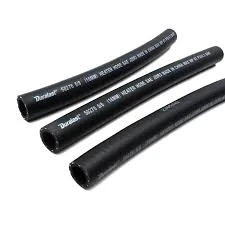soft fuel line
Septemba . 23, 2024 07:03 Back to list
soft fuel line
The Role of Soft Fuel Lines in Automotive Engineering
In the complex world of automotive engineering, every component plays a crucial role in ensuring efficiency, safety, and performance. Among these components, fuel lines are of paramount importance, and soft fuel lines have emerged as a topic of significant interest and application in modern vehicles.
Soft fuel lines are typically constructed from flexible materials such as rubber or specific polymers. Unlike their rigid counterparts, these lines offer several advantages, particularly in terms of adaptability and reducing vibrations. The flexibility of soft fuel lines allows them to withstand the dynamic movements of a vehicle’s engine and chassis, ensuring a reliable fuel supply under various conditions.
One of the primary benefits of soft fuel lines is their resistance to wear and corrosion. Traditional fuel lines, often made from metal, can suffer from rust and other forms of degradation over time, especially when exposed to the harsh chemicals present in fuels. Soft fuel lines, however, are designed to resist these corrosive effects, extending their life expectancy and reducing the need for frequent replacements. This durability is particularly important in environments with fluctuating temperatures or where the potential for fuel leaks exists.
soft fuel line

Moreover, the lightweight nature of soft fuel lines contributes to an overall decrease in vehicle weight, which can significantly improve fuel efficiency. In an era where environmental concerns are paramount, automotive engineers are increasingly focused on achieving better fuel economy. The use of soft fuel lines can play a vital role in this effort, helping to reduce the overall weight of the vehicle without compromising safety or performance.
In terms of installation, soft fuel lines offer a distinct advantage. Their flexibility makes them easier to route through tight spaces and around obstacles within the engine compartment. This adaptability can lead to more efficient design layouts, facilitating quicker assembly and possibly reducing manufacturing costs. The ability to customize the length and shape of soft fuel lines further enhances their implementation in various vehicle models and types.
However, it is essential to consider that the choice of material for soft fuel lines must align with current regulations and standards for safety and performance. Not all polymers or rubbers are suitable for every application, and ensuring compliance with automotive standards is crucial in the manufacturing process.
In conclusion, soft fuel lines play an integral role in modern automotive design and engineering. Their flexibility, durability, and lightweight characteristics make them a superior choice for fuel delivery systems, promoting efficiency and longevity in vehicle functionality. As the automotive industry continues to evolve, the importance of materials like soft fuel lines will likely grow, driving further innovations in safety, performance, and sustainability. The future of automotive engineering undoubtedly hinges on the ability to adapt and innovate, with soft fuel lines leading the way in redefining standards for fuel delivery and management.
